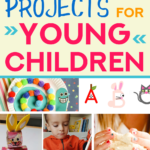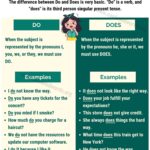Where the Light Enters: Building a Family and Discovering Yourself

Introduction
Finding where the light enters in life is often about embracing the transformative experiences of building a family and discovering yourself. Whether you are starting a family, strengthening relationships, or seeking personal growth, this guide offers actionable steps, real-world examples, and verified pathways for your journey. Every element discussed here is grounded in current research and expert advice, providing a reliable foundation for meaningful change.
Building a Family: Foundations and Pathways
Establishing a strong family begins with intentional choices, open communication, and shared values. Family structures vary widely, from traditional two-parent households to blended families and chosen communities. No single model is universally best; each family must find what works for its unique circumstances.
To begin, reflect on your core values and discuss them openly with your partner or prospective family members. Successful families often prioritize mutual support, empathy, and a commitment to growth. According to the American Psychological Association, regular family meetings, clear boundaries, and shared goals help create resilient relationships [1] .
Step-by-step Instructions:

Source: institute.careerguide.com
- Define your family goals and values together. Use structured conversations to align on important topics such as finances, parenting styles, and conflict resolution.
- Establish routines for regular communication. Weekly family check-ins can foster openness and trust.
- Seek out professional resources as needed. Family therapists and counselors are accessible through your local health departments or organizations like the American Association for Marriage and Family Therapy [2] .
Example: Sarah and Miguel, a blended family with children from previous marriages, found that scheduling monthly “family vision” meetings helped them address challenges and celebrate successes together. They used worksheets from the APA and attended workshops at their local community center.
Alternative Pathways: For those building families outside traditional models, chosen family networks-such as close friends or support groups-can offer similar benefits. Many LGBTQ+ individuals form strong familial bonds with non-biological relatives, supported by organizations like PFLAG [3] .
Potential Challenges and Solutions: Family dynamics often involve disagreements. Address conflicts early and respectfully, focusing on active listening and compromise. If persistent issues arise, professional mediation may be beneficial.
Discovering Yourself: Personal Growth and Self-Awareness
Self-discovery is a lifelong process, intimately connected to the relationships and environments you cultivate. It involves exploring your passions, strengths, and areas for growth. Research shows that regular self-reflection, goal setting, and feedback from trusted individuals accelerate personal development [4] .
Step-by-step Instructions:
- Set aside dedicated time each week for personal reflection. Journaling, meditation, or creative pursuits can help clarify your thoughts and feelings.
- Identify your core strengths using validated tools such as the VIA Character Strengths Survey [5] .
- Develop a personal growth plan with specific, measurable goals. For example, “I will practice gratitude daily” or “I will learn a new skill this month.”
- Seek feedback from trusted friends, mentors, or coaches. Constructive input helps reveal blind spots and opportunities for improvement.
Example: After feeling stuck in her career, Priya used the VIA survey to discover her top strengths were curiosity and perseverance. She set new learning goals and joined a local mastermind group for accountability and support.
Alternative Approaches: If traditional self-help resources feel inaccessible, consider community workshops, online support forums, or public libraries. Many organizations offer free personal development programs-search “personal growth workshops” in your city or on Eventbrite for local options.
Potential Challenges and Solutions: Overcoming self-doubt and inertia can be difficult. Start small and celebrate incremental progress. If deeper issues arise, consider professional counseling or support groups.
Integrating Family and Personal Growth: The Synergy
The intersection of family building and self-discovery creates a powerful synergy. Strong relationships serve as a mirror, reflecting both strengths and areas for growth. Likewise, self-awareness enhances your capacity to nurture others.
Actionable Guidance:
- Share your personal growth journey with family members. Invite them to join you in setting goals, practicing mindfulness, or learning new skills together.
- Model vulnerability and resilience. Children and partners often learn best by example.
- Use family challenges as opportunities for joint growth. For instance, navigating a financial setback can strengthen problem-solving and unity.
Example: The Johnson family faced a major relocation. They used the opportunity to set collective goals, such as exploring new hobbies and building community connections, turning a stressful transition into a shared adventure.
Alternative Pathways: For individuals estranged from family, community organizations, faith groups, or volunteering can offer meaningful connections. The National Alliance on Mental Illness (NAMI) provides support groups for diverse needs .
Challenges and Solutions: Balancing personal and family needs requires ongoing negotiation. Establish regular “me time” as well as “family time” to ensure both priorities are honored.
Accessing Resources and Support
Multiple pathways exist for accessing support in family building and self-discovery. Here are step-by-step instructions and alternatives:
- Professional Counseling: To find a licensed therapist, use directories from the APA or Psychology Today. Search “family therapy near me” or “personal development coach” for local providers.
- Community Organizations: Local community centers, libraries, and non-profits offer workshops and support groups. Search “community family programs” in your area or visit your city’s official website for listings.
- Online Resources: Verified platforms such as PFLAG, NAMI, and the VIA Institute offer free tools, surveys, and guides.
- Books and Media: Explore well-reviewed books from public libraries or major retailers. Search “family building” and “self-discovery” for curated lists.
Contact Methods: If you prefer direct outreach, most organizations list phone numbers and email contacts on their official websites. For government programs, visit the agency’s main portal and search for “family support” or “personal growth.” When in doubt, use general search terms and check for verified domains.
Key Takeaways and Next Steps
Where the light enters is a metaphor for openness-to growth, connection, and healing. Building a family and discovering yourself are parallel journeys, each enhancing the other. Begin with honest reflection, embrace support, and pursue growth in both personal and relational spheres.
For further guidance, consider:
- Joining local or online support groups
- Scheduling regular family meetings
- Engaging in personal development workshops
- Seeking professional counseling if needed
Your journey is unique, but resources and support are widely available. Use the provided search strategies to find verified services and assistance tailored to your needs.

Source: thecooldown.com
References
- [1] American Psychological Association (2024). Family Relationships & Support.
- [2] American Association for Marriage and Family Therapy (2024). How to Find a Family Therapist.
- [3] PFLAG (2024). LGBTQ+ Family Resources and Support Networks.
- [4] Psychology Today (2025). The Basics of Self-Discovery.
- [5] VIA Institute on Character (2025). VIA Character Strengths Survey.
- National Alliance on Mental Illness (2025). Support Groups and Community Resources.






